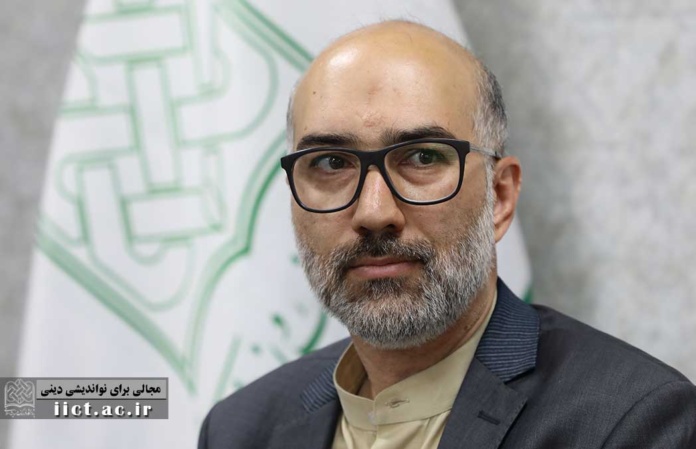An article by Dr. Mohsen Radadi, Head of the Islamic Revolution Studies Group at the Research Institute for Islamic Culture and Thought
Martyr Soleimani is known for his activism in the field. By this, we mean that this great martyr was always present in the field of struggle and action, but let us examine the concept of “the field” beyond just the battlefield. Pierre Bourdieu, the French sociologist, refers to a concept called “field” (in French, champ). According to him, the field is a social structure that has its own rules and principles, where players compete with each other. The field provides a set of situations, and players with different positions have various opportunities to secure their interests. The players in the field compete with each other, and their position in the field depends on the amount of power they possess. Bourdieu associates these powers with four types of capital: economic capital, social capital (various kinds of valuable relationships with others), cultural capital (intellectual, educational, and cultural assets and skills), and symbolic capital (social acceptance). Any player who can accumulate and effectively use more of these capitals can win in the field. The position of actors in the field depends on their capital, and based on the amount and type of capital they have, their place in the field is determined. In the field, struggles occur between players who fight for better positions, and their goal is either to maintain or transform the existing power relations. Martyr Soleimani tried to change the power relations in this field and empower the oppressed people under the control of the U.S. and the Zionist regime.
Martyr Soleimani was able to increase the social capital of the resistance front by gaining the trust of the people. This led to individuals who believed in resistance from various nationalities (Iranian, Afghan, Iraqi, Lebanese, etc.) coming together to expand the resistance front. Another important ability of Hajj Qasem was increasing the symbolic capital of the resistance axis. An individual or group with symbolic capital is accepted by society as superior, worthy, and in an exceptional position. The field has its own rules, and the one who wins is the one who can effectively mobilize the four types of capital against the opponent. Hajj Qasem knew the rules of the field, and when he realized that the resistance axis could not compete with the opponent in certain types of capital, he turned to social and symbolic capital. The commander of hearts strengthened his relationship with society and the people, compensating for weaknesses in other types of capital and thus making it possible to overcome a powerful opponent in the field. Turning to the people, showing respect and humility towards society, and avoiding any behavior or speech that could harm the public’s feelings brought him and the resistance front abundant social capital. Moreover, by refraining from engaging in partisan conflicts, he was able to safeguard his symbolic capital. There is no statement from him that had any partisan tone. This caused all political factions to bow to him. According to field theory, players usually create controversial representations against the opposing side. These representations are weapons for fighting and winning in the field, and they can appear as stereotypes or even insults.
In this case, Iran’s enemies labeled Martyr Soleimani as a “terrorist” and accused him falsely in an attempt to destroy his social and symbolic capital. His grand funeral procession showed that even after his martyrdom, his trust and popularity among the people of Iran and the region remain intact, and the enemies’ schemes were unsuccessful. However, Martyr Soleimani’s approach to activism in the field offers valuable lessons for us, and applying these lessons can help us win in the field against opponents.
- Having new plans and finding constructive solutions is important. It is unfortunate if the loyalists of the Islamic Revolution front become confined and restricted by fame. Such solutions are not seen in Martyr Soleimani’s actions. Thinkers and supporters of the revolution front must consider new ideas and constructive solutions for governance.
- When we are weak in terms of social and cultural capital (technology and skills), the only remaining option is to strive for social and symbolic capital. Martyr Soleimani was a successful model for effective communication with people and gaining their trust. We only need to learn how he interacted with people, how he earned their empathy, and how he understood and avoided crossing the red lines and sensitivities of public opinion. If we consider the downfall of the Syrian government as a result of losing the people’s trust and social capital, then one can ask: if Martyr Soleimani’s approach had continued and he had gained the trust of the people, could the events in Syria and the region have turned out differently?
- Revolutionary and resistance thinking is very appealing to the people. A misconception has emerged among some officials that revolutionary slogans and the idea of resistance against imperialism are no longer attractive, and repeating them causes the people to turn away from the government. Just a few days ago, one politician said, “We must accept, realistically, that we do not have the mission to change the global order, nor are we capable of doing so.” A government official also emphasized, “When you wake up in the morning and hear who is seeking revenge on whom, it must stop.” Will the expression of these anti-resistance ideas, which advocate for subjugation, lead to the popularity of these politicians and bring social capital? Was Martyr Soleimani, who was always in the battlefield and fiercely challenged the “gambling Trump” while defending “dear Khamenei,” more popular and loved than these appeasing politicians? If we observe carefully, we will realize that the people are tired and disgusted by the hypocrisy of some managers and officials who exploit the name of revolution for their own gain, not by fighting or being revolutionary. This is an important lesson we learn from the path of Martyr Soleimani.




